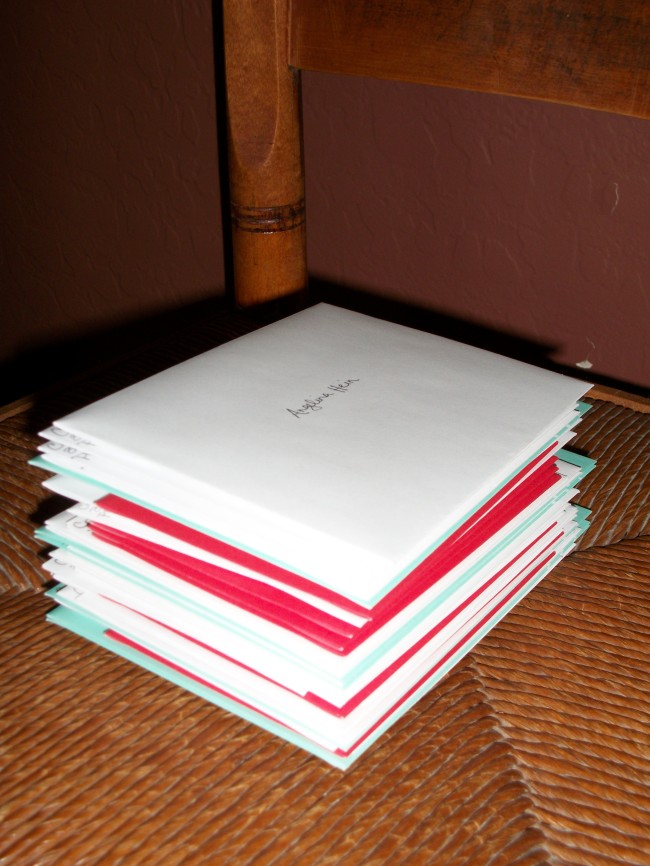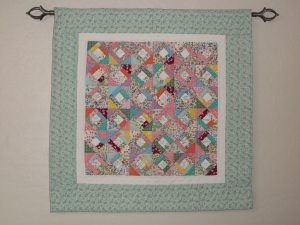For a child has been born for us,
a son given to us;
authority rests upon his shoulders,
and he is named
Wonderful Counselor, Mighty God,
Everlasting Father, Prince of Peace. (Isaiah 9:6 NRSV)
I’d just had lunch with my friend Andrea and we left the burrito shop and walked together toward our cars in the parking lot. In the middle of a parking aisle was a woman in distress. Her SUV had stalled out and was blocking traffic. Alone, she was unable to steer it into a nearby parking spot. Andrea and I told her we would help. The woman hopped into the driver’s seat, put her SUV in neutral, and Andrea and I took out places at the back bumper. When she yelled, “ready!” we leaned down, put our hands on the back of the SUV, and pushed. It took quite a bit of strain and force and umph to get the car moving, but once the wheels started rolling, the SUV easily glided into the stall.
As I wiped off my dirty hands, Andrea looked at me with eyebrows raised and said, “Wow, Corrie. You are strong!” Her tone was laced with surprise. She hadn’t expected me to be much help pushing the car. I got her logic. Then, like now, I was overweight. My body was round and cushiony, or Rubenesque if you know that art history reference. I had no visible muscle definition. I took walks for exercise. Whereas Andrea was slim and trim. At the time she worked for one of Silicon Valley’s tech giants, so she had access to a free personal trainer, a lap pool, a weight room, and on-site exercise classes which she religiously utilized. I can see why Andrea wouldn’t expect much from me.
The thing is, the size and shape of something doesn’t determine its strength or its impact. Tiny ants can carry away picnic scraps twenty-times their weight; that is the equivalent of a human carrying 4,000 pounds on their back.1 Babies can grip and suck so hard that adults will struggle to retrieve toys and pacifiers from them. And overweight people can push SUVs. Strength can come in a surprising package.
On this second Sunday of Advent, we are reflecting on the prophesied Messiah as the “mighty” God from Isaiah 9:6. This adjective in Hebrew (gibor) is commonly translated mighty, but strong is an equally fine translation. Might often refers to strength, power, and the ability to make impact and have influence. Metaphorically, it was also used in the Old Testament to deem a soldier valiant or a hero.
The Messiah as mighty God? On one hand, this seems a no-brainer. Our most fundamental understanding of God is as the Creator of the world–of all that we can see, of the ground we walk on, of the planet we call home, and of what we call “outer space.” In the past month I’ve read two articles about the discovery of new species. First, off the coast of Japan scientists discovered a jellyfish with a unique red cross on it’s bell–that round part on top.2 Then there was a sea creature related to the starfish found in the waters off Antarctica.3 Scientists are calling the new creature the “Antarctic strawberry feather star.” It has twenty arms, some with a bumpy texture, and others that are feathery. It’s amazing to think that after so many centuries of documentation, we still have so much to discover about creation. Of course God’s anointed one–the much-anticipated, much-needed Messiah–would be mighty if he comes from the creator himself.
And of course, the Israelites would hear Isaiah’s prophecy and then anticipate the coming of a warrior who would save them from their pagan enemies and oppressors. That’s always the scriptural context for the gibor, ‘might.’ It makes sense to look for a Messiah who was not only physically strong, but who also had strength of character–you know, things like clarity of purpose; unshakable resolve; someone with the strategic mind of a general to outwit all other generals; someone almost intimidating in their leadership and righteous fervor for the Lord.
But God’s ways do not always meet our expectations. Strength can come in a surprising package. Might can start in a manger.
We all know the birth story of Jesus. Mary and Joseph came from Nowhereville. Joseph was a tradesman, and likely poor. Mary was very young, abruptly thrust into marriage and parenthood after a shortened betrothal due to her pregnancy. A pregnancy that would have garnered them a lot of social shame. A pregnancy that would end in a village unfamiliar to them, where there were no available guestrooms, and so they’d be forced to take refuge in a barn among the animals. Their baby would be born without immediate fanfare, with few supplies on hand except clean cloths and fresh hay filling the manger where the animal usually took their meals.
Jesus was the foretold Messiah sent by the mighty creator to earth…but as a baby? A warrior born in a barn? A savior who would apprentice under his carpenter father? Where was the promise of greatness? How could this boy, with his unfortunate background, come to much? His prospects were poor in every way, and yet THIS was the Creator’s choice, his perfect plan of salvation.
God could have chosen to have his anointed savior appear suddenly. The All-powerful could have skipped the whole messy birth and the years of growth from a squalling infant, to an active boy, to a gangly adolescent, to a mature man. Honestly, he could have skipped the whole human thing altogether and sent the leader of his heavenly armies to save his people. What legion could defeat the heavenly forces of the Creator?
Instead, God chose to go and be present with his people in their struggles. God sent his divine son to live as his people lived–as a human. Jesus would start where all people start, and grow as all people grow, I believe, to show complete empathy for the world. God so loved the world that he gave his only begotten Son. Jesus knew what it was to live burdened by taxes, and surrounded by corrupt leaders, and sickness, and struggle, and sin, and death. He also experienced life’s joys and pleasures.
Jesus knew the full value of human life, so he knew exactly what it would take to save the lost, hurting, desperate people God loved. It would take a life. A total, selfless sacrifice. And that is strength. That poor baby born in a manger a long way from home became the mightiest warrior the world would ever know.














